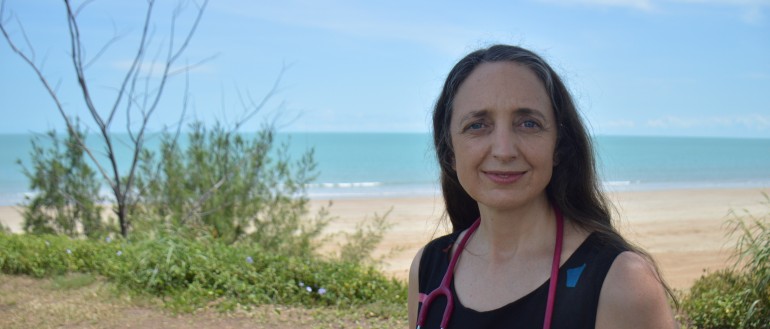Dr Bianca Middleton has won the 2022 Harry Christian Giese Research into Action Award for her proposal to address under-vaccination for Aboriginal and Torres Strait Islander children under five years old.
Dr Middleton will lead community stakeholder engagement and work with cultural advisors and First Nations researchers to adapt the Vaccine Barriers Assessment Tool (VBAT), which has been developed to identify the key drivers of under-vaccination, to better guide the selection and implementation of cost-effective interventions to increase vaccine uptake.
Immunisation is one of the most effective public health measures for prevention of childhood death and disease, however First Nations children living in rural and remote Australia continue to experience delays in immunisation due to poor timeliness, and therefore suffer a disproportionate burden of infectious and vaccine preventable diseases (VPDs).
Dr Middleton said the development and validation of the VBAT to diagnose the root causes of under-vaccination and improve timeliness and uptake is critical for Aboriginal and Torres Strait Islander children living in rural and remote northern Australia.
“In New Zealand, VBAT is being developed with Maori parents and now a culturally appropriate tool needs to be developed in partnership with First Nations parents and stakeholders to ensure cultural relevance for rural and remote Aboriginal and Torres Strait Islander children, their families and communities,” Dr Middleton said.
The Harry Christian Giese - Research Into Action Award acknowledges the significant and formative role that the late Harry Giese AM MBE played in the establishment of the Menzies School of Health Research. Both Harry and his wife Nancy “Nan” Giese were resolute in their commitment to providing educational opportunities for Territorians and for their support of Menzies.
“The focus of the award funding will be to adapt VBAT for use by Aboriginal and Torres Strait Islander parents living in rural and remote northern Australia, ensuring cultural appropriateness, face to face engagement and comprehensive stakeholder and community engagement. For the first time, the causes of under-vaccination for Aboriginal children in Australia will be able to be accurately determined to ensure tailored and appropriate strategies are developed to improve vaccine timeliness and uptake as no such tool currently exists,” Dr Middleton said.

